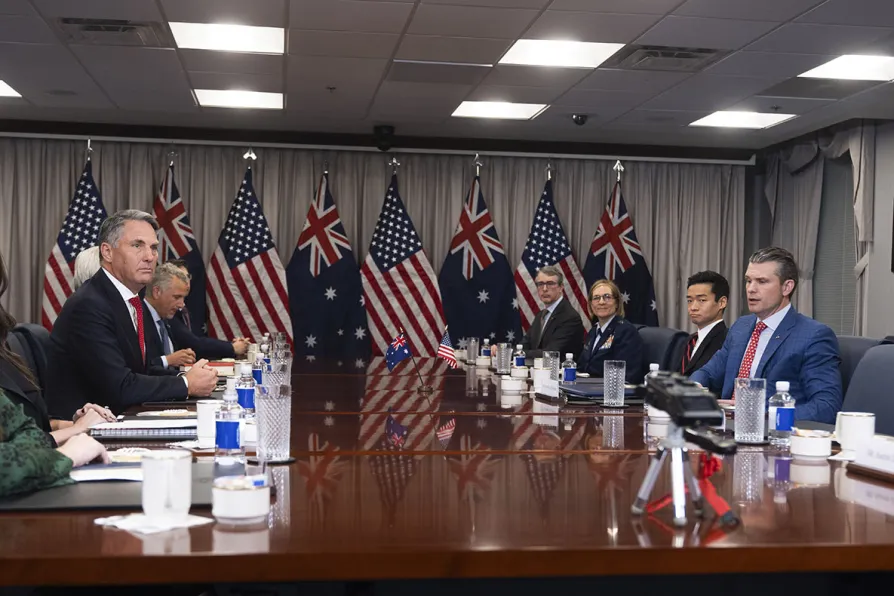
 Secretary of Defense Pete Hegseth (right) welcomes Australian Deputy Prime Minister and Defense Minister Richard Marles (left) before the start of their meeting at the Pentagon, February 7, 2025, in Washington
Secretary of Defense Pete Hegseth (right) welcomes Australian Deputy Prime Minister and Defense Minister Richard Marles (left) before the start of their meeting at the Pentagon, February 7, 2025, in Washington
THE GOVERNMENT has downplayed a US decision to review the Aukus nuclear military agreement with Australia and Britain.
Calling the deal “one of the most strategically important partnerships in decades” a British government spokesperson said it was “understandable” that the US would review the deal.
The US review stoked fears among British top military brass over the possibility of the superpower leaving the military pact as part of Trump’s “America First” policies.
Pentagon official Elbridge Colby is heading up the probe after describing himself as “sceptical” of Aukus. US officials have objected to terms including the sale of existing US submarines to Australia, saying these may be needed in a Pacific war with China that Australia has not committed to join.
A British government official said: “It is understandable that a new administration would want to review its approach to such a major partnership.
“The UK will continue to work closely with the US and Australia at all levels to maximise the benefits and opportunities which Aukus presents.”
Announced in 2021, Aukus involves joint work on a new fleet of nuclear-powered submarines for Australia and Britain.
A spokesperson for the Stop The War Coalition told the Morning Star: “Confrontation with China has been the governing principle of US foreign policy for some time and the Aukus pact represented a significant escalation of the arms race in itself. It fits into a pattern of anti-China provocations that could lead to war.
“Let’s be in no doubt, this review is not about pulling back from increased militarism but because the Pentagon fears it won’t have enough subs of its own to confront Beijing.
“Which is why the anti-war movement must continue to campaign against Aukus, irrespective of reviews by the US or the UK.”
The General Secretary of the Campaign Against Nuclear Disarmament (CND), Sophie Bolt, told the Morning Star: “Any review that results in ditching the Aukus treaty is a step in the right direction for global peace.
“This pact drives nuclear proliferation and breaches the Nuclear Non-Proliferation Treaty as it facilitates the sharing of nuclear technology with Australia, a non-nuclear weapons state.
“Australia should seize this opportunity too, saving hundreds of billions of Australian dollars and helping to defuse tensions across the Asia Pacific.
“It shows why the British government needs to rethink its disastrous approach to kick-starting the economy on the backs of arms deals.”










